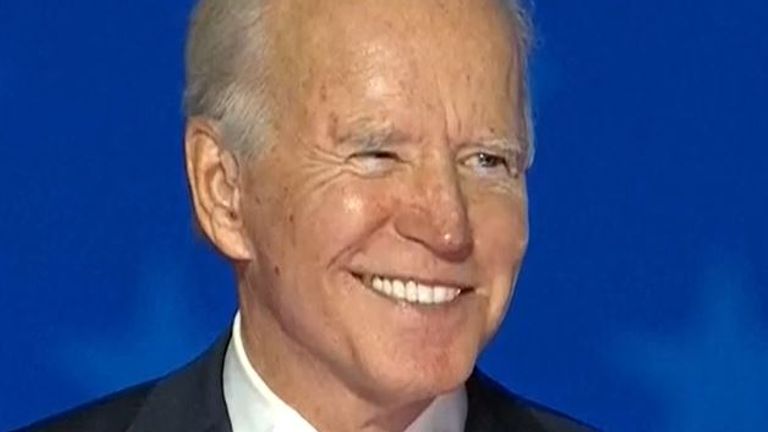Whoever wins this nail-biter of an election, it may spell the end of the world order as we know it.
Whatever the outcome, one fact stands out: millions more people have voted for Donald Trump than in 2016, and that is very significant for those outside of America.
US election 2020 live: Follow the latest updates
Throughout the president’s first term in office there has been one question on the minds of many outside of the US, friend or foe.
Was the decision made by Americans four years ago a one-off, an aberration or a sign of things to come? We may now have an answer regardless of the result.
America built the world we live in, it was the architect of the post-war world order, its institutions, and the rules and agreements that have made our lives safer and more prosperous than they would otherwise have been.
And yet Donald Trump seemed opposed to so much of that.
He has openly derided international organisations and pulled out of some of them. He has gone back on America’s word by pulling out of international agreements on the climate and Iran. He has criticised allies and openly admired strongmen and autocrats.
He has undermined NATO by raising the possibility of America withdrawing from the western alliance. If he is elected, he may well follow through on that threat.
So traditional US allies as well as its rivals and enemies will have been watching this election closely to see if Americans endorsed that radical break with the country’s past, or rejected it.
Many Americans it seems are perfectly happy with a president disrupting so much of what the country worked so hard to put together.
They are not happy with America’s place in the world as it has become and used their vote to endorse Trump’s record.
If Joe Biden wins, he can work hard to restore America’s credibility among allies, renewing US support for the deals on Iran and the climate.
He will try and repair relations and alliances and put the US back at the centre of the world order.
But even then, allies may continue to doubt America as a reliable partner. They will know that it has voted for a Trump once and could vote for someone like him again.
To have dispelled those doubts, Americans needed to have voted decisively against Trump.
Millions more have voted for him this time round than the first time – even in the middle of a pandemic that has claimed hundreds of thousands of lives.
Whoever wins, America’s allies will need to hedge their bets in future, knowing there is a substantial chunk of the US electorate who have been willing twice to vote for a revolutionary disrupter on the world stage.
They will need to take into account the possibility that America will pull out of NATO, and without America’s unconditional support that alliance is undoubtedly weakened.
And they will know that Trump has shown the way for others like him.
Trump wannabes know there is considerable support for his kind of agenda at home and abroad that they will be able to tap into in future.
It turns out there is not the kind of unqualified enthusiasm for NATO, and the liberal democratic world order that allies have till now taken for granted.
:: Subscribe to the Daily podcast on Apple Podcasts, Google Podcasts, Spotify, Spreaker
This is extraordinary.
America set up the institutions and wrote the rules that run much of the world in a way that suits America.
For an American president to retreat from leading that order and threaten to dismantle parts of it is hard to understand.
Isolationism is nothing to new to America and it has paid the price for it in the past, forced to intervene in two bloody world wars.
In the wake of the second, President Roosevelt led efforts to build a world order to safeguard the West’s prosperity and security to avoid the need for more costly interventions.
The support for Trump suggests Americans no longer see value for money in those arrangements.
America’s western allies will need to make plans accordingly.





